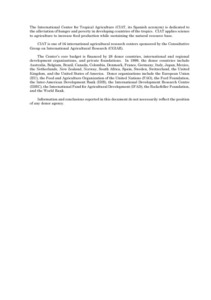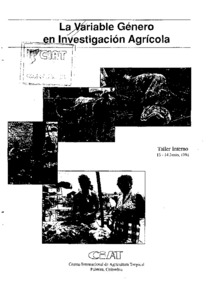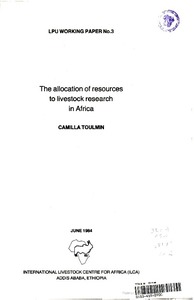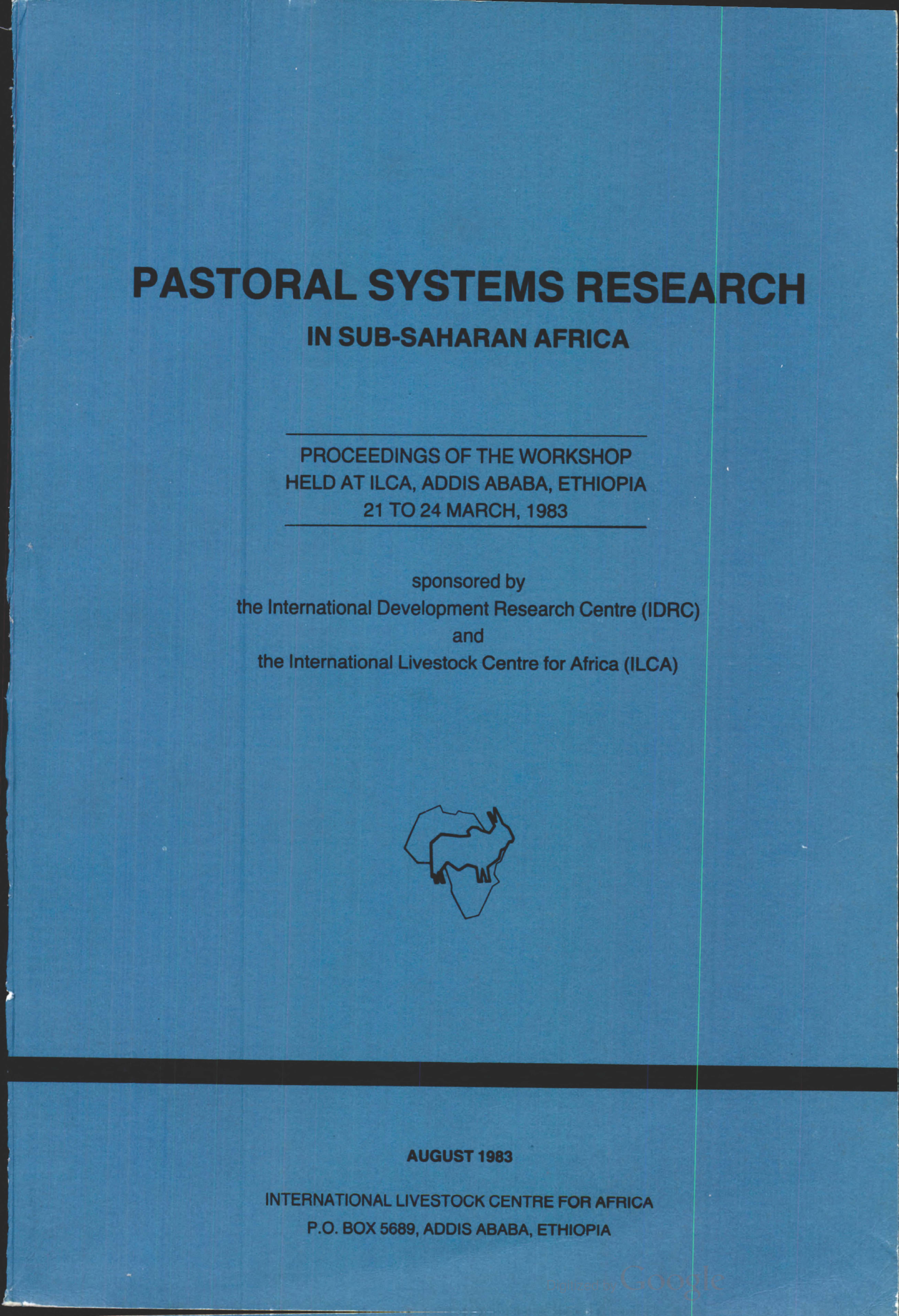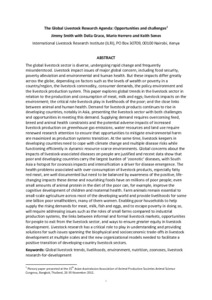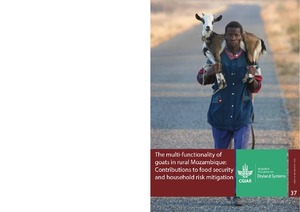Taller Instrumentos Metodológicos para la Toma de Decisiones sobre Manejo de los Recursos Naturales en Laderas (1998, Yorito, Yoro, Honduras). Memoria
Taller Interno La Variable Género en Investigación Agrícola (1991, Palmira, Colombia). La variable género en investigación agrícola
Technology diffusion from University to the Private Sector - Integrating Waste Management and Bio-energy Production - The Case of Bio-Innovate
The allocation of resources to livestock research in Africa
Looks at the allocation of resources to livestock research in Africa. Assesses the role of agricultural research and its value to national governments. Investigates the appropriate criteria to use for decision making by comparing three kinds of decision-making models. Presents conclusions for policy-making.
The assessment and monitoring of forest resources and forestry products statistics in China
Targeting, bias, and expected impact of complex innovations on developing-country agriculture: Evidence from Malawi
The development experience
Discusses pastoral systems research (PSR) within the framework of the experience of livestock and pastoral development in Africa during the last 50 years, analyzing data on livestock population & productivity in relation to the welfare of pastoralists; and examines previous efforts in pastoral development relevant to PSR approach.
The focus agro-ecosystems
The global livestock agenda: Opportunities and challenges
The global livestock sector is diverse, undergoing rapid change and frequently
misunderstood. Livestock impact issues of major global concern, including food security,
poverty alleviation and environmental and human health. But these impacts differ greatly
across the globe, depending on factors such as the levels of wealth or poverty in a
country/region, the livestock commodity, consumer demands, the policy environment and
the livestock production system. This paper explores global trends in the livestock sector in
The multi-functionality of goats in rural Mozambique: Contributions to food security and household risk mitigation
It is widely acknowledged that goats in developing countries fulfill multiple functions and can contribute to improved livelihoods of smallholders. The multi-functionality of goats in rural Mozambique however is fairly unknown. The objective of the paper is therefore to identify and create a deeper understanding of the multiple functions goats currently play in the smallholders sector in Mozambique. The paper takes a sociological approach by advancing the thinking that the functions of goats are socially and culturally constructed, and not ‘given’.

